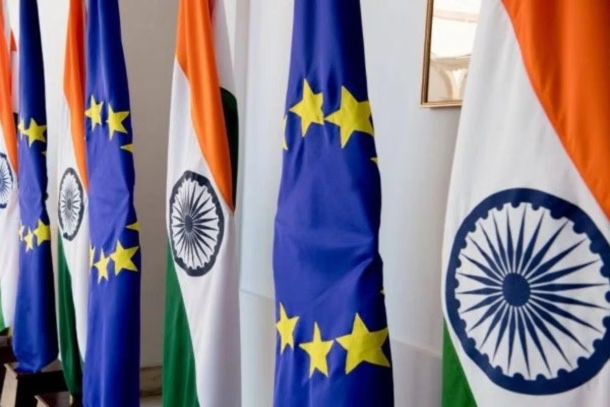Saturday, 28 February 2026

India–EU Free Trade Agreement negotiations have entered a decisive phase as a senior European Union delegation arrives in New Delhi for the latest round of talks from November 3 to 7, 2025. The intensive engagements are aimed at narrowing gaps on key unresolved issues and accelerating progress toward a comprehensive and mutually beneficial pact that strengthens one of the world’s largest democratic trade partnerships. The visit builds on Union Commerce and Industry Minister Piyush Goyal’s strategic discussions in Brussels last week with Maroš Šefčovič, European Commissioner for Trade and Economic Security, reaffirming the political momentum behind a modern, ambitious, and future-ready agreement.
The ongoing technical deliberations span core pillars of the proposed FTA, including trade in goods, services market access, and rules of origin, along with deeper institutional alignment and regulatory cooperation that would shape the long-term architecture of bilateral commerce. Both sides are working to craft a framework that balances India’s development priorities and sensitivities with the EU’s standards-driven trade governance, while also unlocking new pathways for innovation, investment, and sustainable value chain integration.
Negotiations intensified further with a virtual ministerial engagement this week involving Piyush Goyal, Maroš Šefčovič, and EU Commissioner for Agriculture and Food, Christophe Hansen, strengthening convergence on agriculture-linked trade and market facilitation. Adding to the diplomatic push, Sabine Weyand, Director-General for Trade at the European Commission, will hold high-level policy discussions in New Delhi on November 5–6 with India’s Commerce Secretary Rajesh Aggarwal, focused on resolving technical bottlenecks and deepening strategic trust between the two markets.
The presence of the EU delegation in India underscores the shared determination to conclude an equitable agreement that expands economic opportunities, strengthens supply chain resilience, and supports climate and sustainability goals. As global trade landscapes shift, the India–EU FTA is emerging as a critical pillar of economic cooperation and geopolitical alignment, signalling a next chapter in a relationship poised to shape the future of fair and inclusive global commerce.